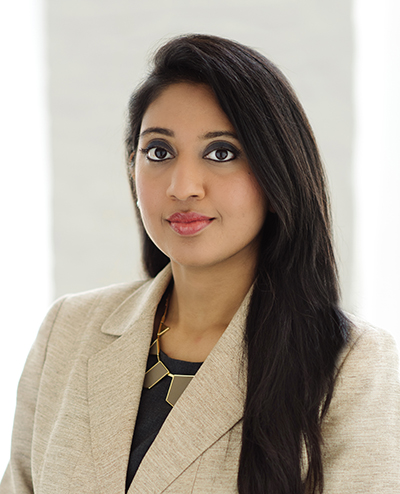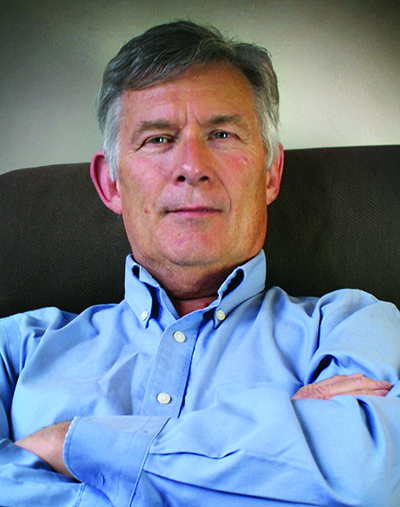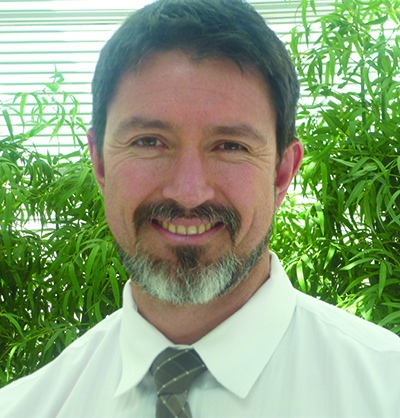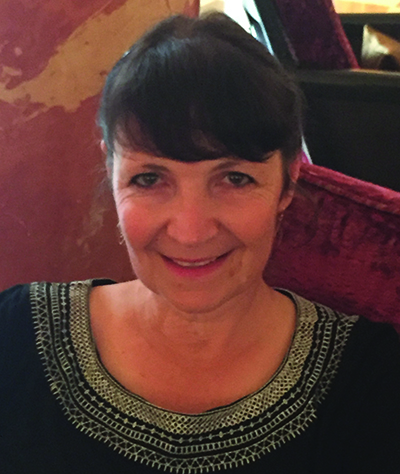The best way to build leadership skills isn’t to read leadership books, attend training classes or watch instructional videos. While those methods can be helpful and necessary, the best way to develop as a leader is to test and grow your skills in the trenches—in the crucible of real-world leadership scenarios.
That’s the essence of Toastmasters’ High Performance Leadership (HPL) program, in which you take on a practical project that enables you to hone leadership skills in areas like developing a vision, goal-setting, conflict management and teambuilding. Working in the High Performance Leadership manual guides you through the steps you need to succeed. One of the first steps is assembling a guidance committee to advise you through your project.
Completing the HPL program is required to earn a DTM. In the Toastmasters Pathways learning experience, the new education program launching next year, the HPL will continue to be a big part of the program; however, it won’t be required to earn a DTM.
(Read more about the Pathways HPL in the accompanying sidebar.)
The following members have completed their HPL projects either through events orchestrated outside the Toastmasters environment, such as organizing a TEDx event, or with in-club projects such as creating a structured mentorship program. They offer advice on how to choose the right project and extract the most value from leadership lessons learned along the way.

PRIYANKA KOMALA, DTM
Washington, D.C.
Project: Organizing a speech contest
When Priyanka Komala was just 5 years old and living in India, she stepped onstage and gave an impromptu speech. It was a harbinger of future success: She went on to become an accomplished Toastmaster serving as a division governor and club coach.
Komala is a technology director at The National Academy of Sciences, Engineering and Medicine in Washington, D.C., as well as a member of the National Academies Toastmasters club. She chose to organize an area speech contest for her HPL project. More than 30 members attended. Komala says she chose the project because she knew it wouldn’t be easy. Lessons she learned:
Reach out. When Komala began planning her project, no one in her club had experience with the process. She asked others, including some area governors, for input on how to choose the best project. The process of reaching out taught her the value of asking for help.
“It’s okay to be vulnerable as a leader,” she says, “and let others know you don’t have knowledge in certain areas. The only way to learn is to acknowledge that you might not have all the answers.”
She also points out that not everyone has time to help. “You have to be okay with hearing no from people.” That gave Komala the opportunity, for example, to ask if they knew others who might have advice to offer. She received suggestions that turned into valuable contacts.
Influence without authority. Delegating tasks to those assisting her didn’t always come naturally to Komala. “I had to delegate more than I was used to,” she says, “but empowering and trusting those on my team was key to getting the job done. Taking on more of an influential, rather than authoritative, role was enlightening to me and often created better team dynamics.”
Accept hiccups. As someone with an admitted perfectionist streak, Komala came to accept that not everything in her project would go smoothly. “Things don’t always shape up the way you plan, so you have to see it as part of the process and not take it personally,” she says. “It helps you be more creative in problem solving.”
Showing you care. The HPL also underscored for Komala that showing concern for your colleagues is a key to leading well. “At the end of the day, what really matters is being kind to people,” she says. “When you acknowledge that your team members have lives and challenges outside of Toastmasters, it helps build rapport.”

EDWARD WEDLER, DTM
Annapolis Valley, Nova Scotia, Canada
Project: Organizing a TEDx event
Edward Wedler had no shortage of promising ideas for his project, but one stood apart from the others. Wedler, a member of the Annapolis Valley Toastmasters in Nova Scotia, Canada, who splits his time between Florida and Canada, opted to organize a TEDx event. TED stands for Technology, Entertainment and Design. A TEDx is an independently run TED-like event that attracts those seeking to share and exchange ideas to solve problems or address pressing issues.
“I wanted to bring thought leaders together to discuss ideas about attracting the next generation of people and industries to rural communities,” says Wedler, an Ambassador for the Toastmasters Pathways learning experience.
Wedler knew hosting a successful TEDx wouldn’t be easy. Such events require a high-interest theme to attract quality speakers and meet audience expectations. In his favor were TEDx’s proven formula, strong track record and supportive service.
Applying a global concept locally. Wedler says the project taught him how to orchestrate a community-driven event and seek and coordinate high-quality presenters from a broad range of backgrounds. “I wanted to learn how to take a global concept like TED and apply it locally,” Wedler says. “We identified nine finalist speakers from a list of 29, each of whom spoke for about 15 minutes, and we had an experienced Toastmaster act as master of ceremonies.”
Planning and execution of the event took five months, and 50 volunteers assisted along the way.
Success and failure. Following the event, in a presentation to his club, Wedler highlighted what he perceived as his strengths and weaknesses in leading the project. Strengths included surrounding himself with good people and getting tasks done on time and within budget. Wedler used Google Docs, arranged team Skype meetings and designed effective marketing posters and multimedia emails as part of the project.
“I learned as a leader that sometimes you have to step in and make decisions or say no if things are heading in the wrong direction.”
— EDWARD WEDLER, DTMHis weaknesses? “There are times I think I could have been firmer in making decisions myself rather than delegating.”
One challenge was managing the event’s finances. “I learned as a leader that sometimes you have to step in and make decisions or say no if things are heading in the wrong direction,” he says. The key to success, Wedler believes, is setting achievable project steps or milestones and monitoring them throughout the process.
Beyond Toastmasters. Wedler believes there are multiple advantages to staging a project outside of Toastmasters. “HPL projects done outside the Toastmasters comfort zone help strengthen our brand image, create good public relations and attract new members,” he says. “When the event succeeds, it celebrates Toastmasters and becomes a great marketing tool.”
Seeking feedback. Wedler solicited feedback from his team on his performance as a leader. “I think it’s important to get feedback from those you lead during the project as well as at its end,” he says. Such feedback can help leaders make valuable mid-course corrections.
Wedler believes there are two types of leaders: those who lead through authority and those who lead through example and persuasion. “This project really helped me hone the latter skills,” he says.

MARK BENSINK, ACB, ALB
Thousand Oaks, California
Project: Improving mentorship program
After Mark Bensink earned his CC and CL awards, his club’s vice president education suggested that he carry out an HPL project to revitalize the club’s mentorship program.
“This was the perfect topic for me, as I had spent many years as an adult educator focusing on mentorship and coaching in one of my past jobs,” says Bensink, now a director of global health economics at Amgen in Newbury Park, California.
Bensink created a vision for his project around the idea of the “virtuous circle,” a concept he practices as a martial arts instructor. A virtuous circle refers to a beneficial cycle of events where each event has a positive effect on the next. Bensink, a member of the Amgen Noon Talkers in Thousand Oaks, California, applied the concept to the practice of mentoring.
Three Levels of Mentoring. Working with a small team of club members and his HPL guidance committee, Bensink developed a structured mentorship program based on three levels of mentoring:
At Level 1, new club members receive mentoring for their first three speeches in the Competent Communication manual and first three projects in the Competent Leadership manual.
At Level 2, these new members deliver speeches 4, 5 and 6 in the CC manual, at the same time becoming mentors to newly arriving members. The new mentors, in turn, are mentored by senior club members, who hone their leadership skills.
At Level 3, members give speeches 7 through 10 in the CC manual. Here senior club members—those completing advanced levels—are asked to find a similarly advanced member to form a mentorship team. “This is a co-mentorship relationship where people might spend an hour together switching roles between mentor and mentee to further build skills,” Bensink says.
Learning your style. The project gave Bensink a better understanding of his own leadership style as well as where his mentoring skills needed improvement. “The amount of mentoring I did myself helped me better understand the mentor-mentee relationship and drive the mentoring vision for others,” he says. “It’s a mastery paradigm. When you do something for a long time and get comfortable with it you’re in a better position to lead and teach it.”
Measuring progress. The project also gave Bensink a greater appreciation for the value of meeting goals in increments. “Many times we set project goals and only look at the end point,” he says. “We don’t track how we’re doing at designated steps and milestones along the way.” For example, if mentors and mentees meet for just 30 minutes every two weeks, mentees can use the advice they get to develop a good speech within two months.
A skilled mentor will keep mentees accountable but also help curb any perfectionist tendencies, Bensink says.
“A good mentor will help you focus on areas that need improving but also tell you when your speech is good enough to go.” In other words, the best mentors help mentees strive for excellence and not perfection.

CARINA SCHEY, DTM
St.-Prex, Switzerland
Project: Organizing a TLI
When Carina Schey considered options for her HPL project, she decided on organizing a Toastmasters Leadership Institute (TLI) event. A member of several clubs in Switzerland, she recalls attending a similar event where the keynote speaker was less than inspirational.
“I committed right there to holding a TLI where the speakers would do a great job of inspiring everyone,” says Schey, an Ambassador for the Toastmasters Pathways learning experience. “I also wanted an event that would be highly interactive so everyone felt involved and there wouldn’t be any death by PowerPoint.”
Schey began organizing the TLI in the city of Bern for the three Toastmasters divisions in Switzerland. Along the way, she learned important leadership lessons she now applies in her profession as a consulting health economist, as well as in her leadership roles within Toastmasters.
Create contingency plans, and backups for contingencies. When one of the speakers for Schey’s event canceled, she decided to find back-up speakers for all of her TLI sessions. That planning paid off when another speaker canceled the night before one of the sessions. Such contingency planning is often easier said than done. “It took a bit of diplomacy, because no one wants to feel they are second best,” Schey says. “But I contacted people who I thought would cherish the opportunity to be backup speakers.”
View obstacles as a challenge. Most Toastmasters encounter obstacles in planning or executing their HPL projects, but Schey says the key is to keep moving forward. “If you really believe in your project you can overcome any obstacle.”
Brief your speakers. Another lesson Schey learned, which she now applies to the professional conferences she organizes, is to give speakers a detailed brief of what is expected from them. “Because I wanted TLI speeches that were highly interactive, I ended up briefing the speakers in more detail than I usually do in my professional life,” she says. “But now it’s something I do in my work conferences as well.”
The High Performance Leadership manual (Item 262) can be purchased through the Toastmasters International Online Store. You can also purchase a digital download in seven translated languages.
Dave Zielinski is a freelance writer in Minneapolis, Minnesota, and a frequent contributor to the Toastmaster magazine.



 Previous
Previous
 Pathways HPL Draws Praise
Pathways HPL Draws Praise
 Previous Article
Previous Article